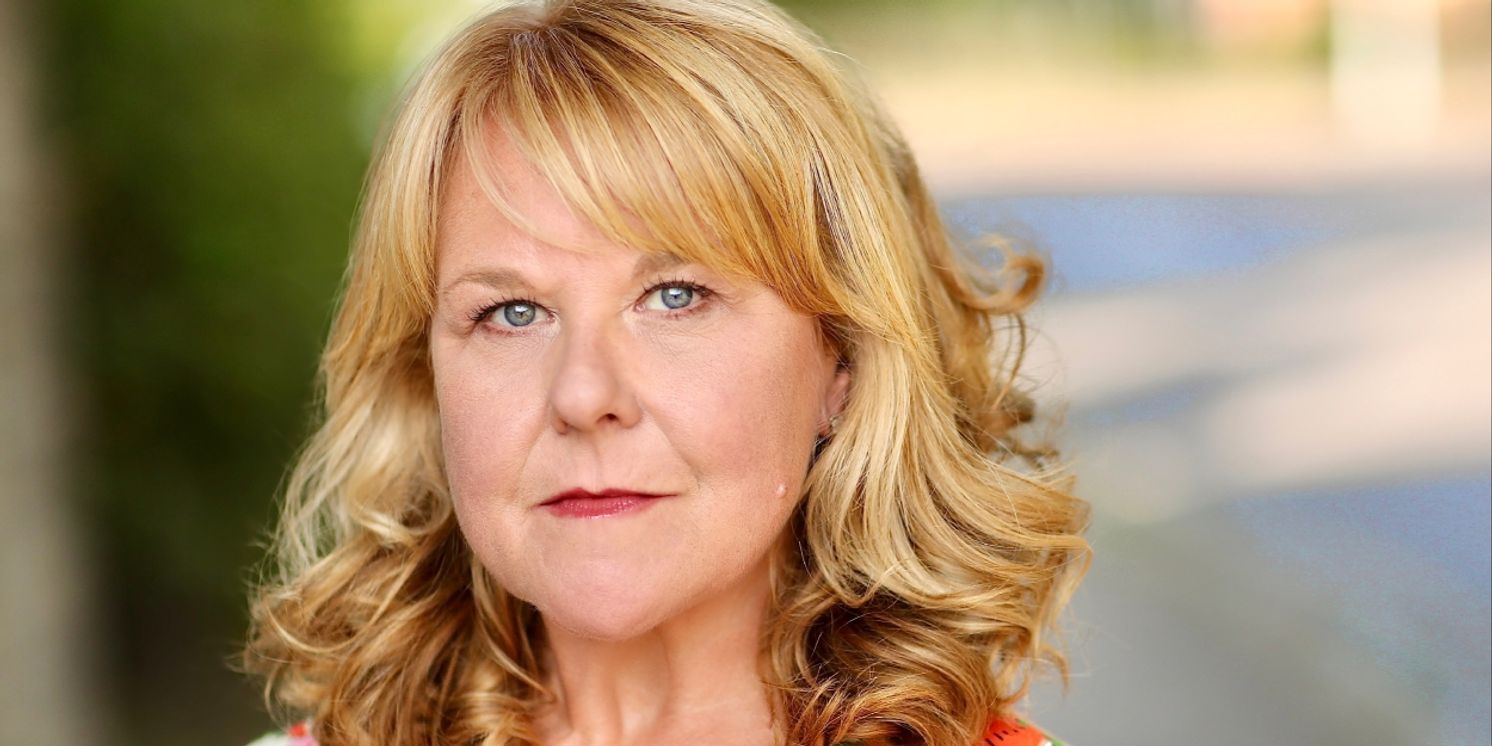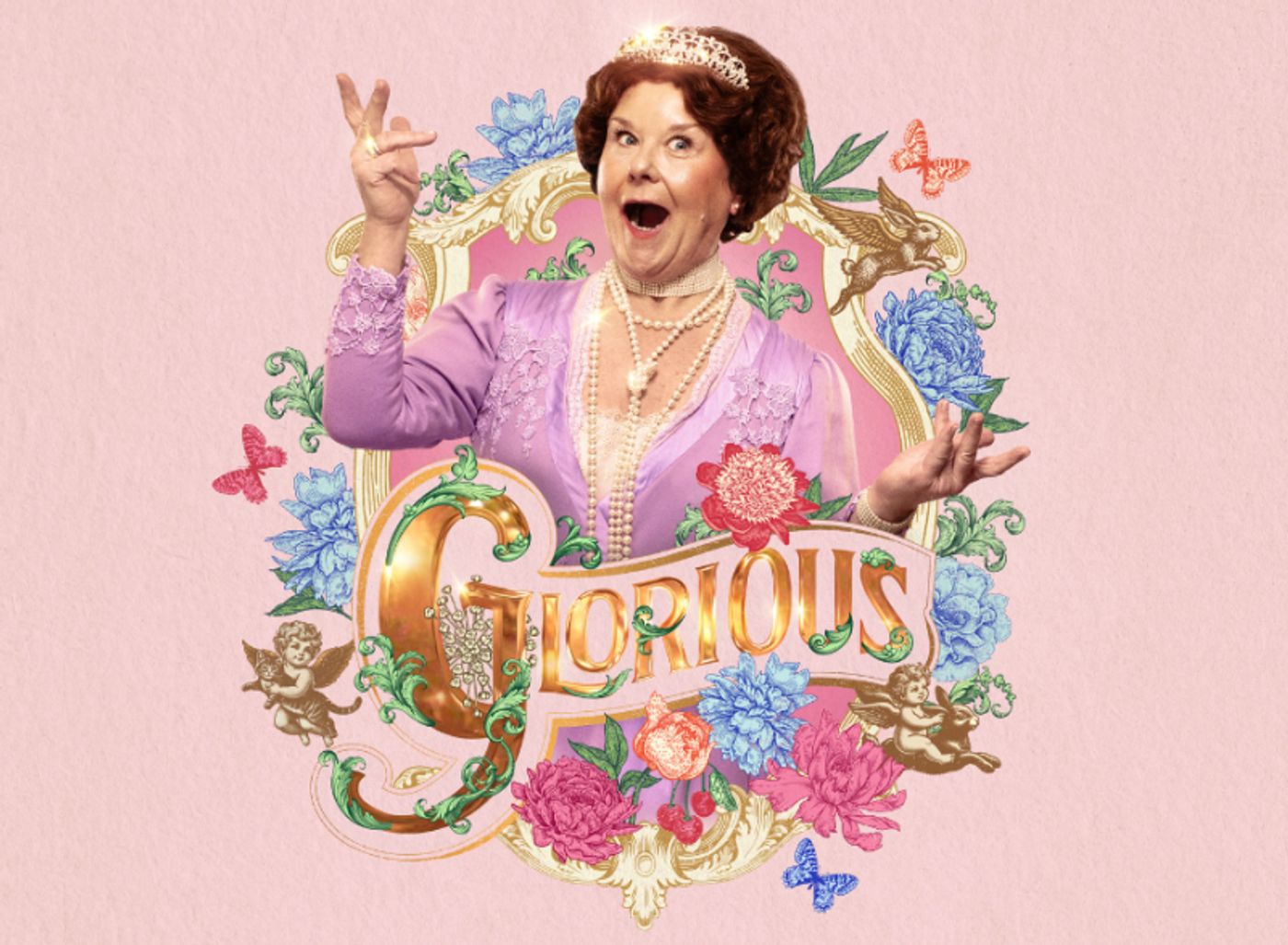Interview: 'There's Something About Northern Audiences': Actor Wendi Peters on GLORIOUS! at The Hope Mill Theatre
'You don't have to be brilliant at something to enjoy and to entertain'

Glorious!, the musical about Florence Foster Jenkins, who is referred to by some as “the worst singer in the world,” is arriving at the Hope Mill Theatre later this month. Written by Peter Quilter and directed by Kirk Jameson, the show aims to tell the true story of the American socialite, played in this production by Wendi Peters.
Recently, we had the chance to speak with Wendi about taking on the role of Florence Foster Jenkins. We discussed what it is like to be playing a character based on a real person in history, some of her favourite lines from the show so far and how she feels about preparing to sing badly on purpose!
So how did you first get started in the world of theatre?
Really, the normal way that a lot of kids do - school plays. And then I went to a local dancing school and did a lot of dance festivals and amateur shows. Then my mum and dad took me and my sister to London for a weekend for the first time when I was about twelve to see Annie at the Victoria Palace. I think that was when I realised that people do this as a job - this is quite fun!
And what made you want to be a part of this production of Glorious!?
Out of the blue, my agent sent me through the script and said, “They want you to read this and see what you think.” Normally, I get sent quite a few scripts, and think, “Oh, I'll look at it tomorrow.” But I started reading it and I couldn't put it down - I was laughing out loud on every page! And that just makes you think, “I need to do this.”
.jpg?format=auto&width=1400)
Photo Credit: Rich Southgate
For those who are unfamiliar with Florence Foster Jenkins, can you us a bit about Glorious! and the role you play?
Glorious! is a brilliant three-hander piece written by Peter Quilter, and it traces the life of Florence Foster Jenkins, who was a New York socialite. She had an awful lot of money, which had been left to her by her father. Ironically, when he was alive, he wouldn't give her any money because he didn't want her to sing in public. She has a line, “Once he died, I could spend it exactly how I wanted. So now I sing all the time.” She was very big in the clubs and the ladies' meetings and the charity scene, putting on balls and events, and she would always sing at them. Some of these events would have 800 people there, but she was very, very clever and shrewd, in a way.
And I think with Florence, she understands a little bit of what she does, because she used to interview everybody who came to these events. You couldn't just buy a ticket - she wanted to “root out the enemy,” as she said. Now, whether she means the people who were sniggering not really realising whether they're sniggering at her or for other reasons, she did that. But then, of course, when she decides to book Carnegie Hall, she has a lot of money, but she has to sell out Carnegie Hall in order to make any money. If not, she will lose everything she has.
Had you been familiar with Florence Foster Jenkins before joining the show?
Only when the film came out! I didn't know anything about her until I saw the film with Meryl Streep. It's hard to believe she was a true character, really, because she is so out there and so oblivious to everything that's going on around her. And these are big discussions I want in rehearsals. Did she truly know that she couldn't really sing, or did she believe in herself so much that she just didn't hear it? But since saying yes to doing the job, I haven't watched it again. I don't want to take anything from that.
It's slightly different to the film, in as much the ending’s different. We don't see her decline in health. We hear about it, but we don't see it. So we finish with her giving her big performance at Carnegie Hall, and then she appears as an angel when a speech is being made about her. But I purposely didn't want to watch it because I don't want to take anything from it. I want to try and put my own interpretation on Florence.
And what is it like to be playing a character that's based on a real person?
It's really interesting, because you can start going down a rabbit hole on Google and YouTube and all those things! I didn't realise there were so many recordings of Florence singing, so I made an Apple playlist and started playing it in the car. And the dog was just hilarious, going, “What’s this you're listening to, Mum?” I've only just moved house, and I was decorating the downstairs loo and listening to it - it's actually painful to listen, but it's going to be such fun to try and recreate that.
And that's a whole process in itself, because I'm, at the moment, learning the songs as they were written. Trying to sing all the notes because it's quite high for my register, but I'm getting to the tops and going well. It doesn't actually really matter if I'm a bit flat - I get away with it! So the trick is we're learning them as they are written, and then we will try and adjust and find some of the moments comedic because it's a fine line between people laughing at Wendi Peters singing badly and understanding that this is how this woman actually sang. You don't want to go for full-out laughs. You want to make it as true as you possibly can.

Have you read any of the interviews she did to prepare for the role?
No, I haven't read any interviews yet. I haven't found any interviews other than her music, because it's such a long way back - 100 years! I'm sure my brilliant director, Kirk Jameson, will have found lots for me to look at.
And what is it like to be reviving this show after its run nearly 20 years ago?
It's scary! Years now go so quickly. It's lovely. I feel honoured to bring it back, and especially to be back in Manchester. It's pretty local to where I was brought up, and to be on home turf, as it were . . . Theatre audiences are fabulous, but there is something about Northern audiences. When they go to the theatre, they want to have a good time.
Have you found any favourite particular lines or songs so far?
There's loads of lines - every page has some brilliant stuff! In the first scene, she [Florence] has a maid called Maria, who's Spanish. Now, Florence doesn't speak any Spanish, so they just spend the entire time shouting at each other. It's such a passionate language - I do I wish I understood more. She says, “I must get around to learning it” and she never does - she just shouts things. She shouts, “What are we having for dinner?” And she shouts “Steak!” In the end, she has to mime the bull horns, to get her to understand that she wants steak for dinner. There's just some brilliant moments like that.
And then stuff with Cosme, who's a great character - a beautiful young man who obviously is gay, but Florence has no gaydar whatsoever, and tells him he must go out this evening and can come dressed to a rehearsal as the king of hearts. “And tonight, you go out and find yourself a nice queen.” It's little things like that. She's just brilliant and obviously loves life, but isn't really aware of anything around her.
.jpg?format=auto&width=1400)
Photo Credit: Rich Southgate
And so what is it like performing on stage versus on screen?
They are so completely different - I adore doing both of them! It's whatever I'm doing at the time, really. But if somebody gave me a choice and said, “For the rest of your career, you can do one,” I would choose the stage. It's where I started. It's where my roots are. Before Coronation Street and the TV stuff, I'd done musicals and plays and comedies, and it's where my training background is.
What do you hope audiences take away from Glorious!?
I hope they take away a fun evening where they can forget the troubles of this flipping world at the moment for two hours and learn more about Florence. For me, the moral of it is you don't have to be brilliant at something to enjoy and to entertain.
And finally, how would you describe Glorious! in one word?
Glorious is the easy word to say, and I'm guessing that's why it's called that as well! If I can use two, just “great fun.”
Glorious! runs from 27 February - 30 March at the Hope Mill Theatre.
Videos

